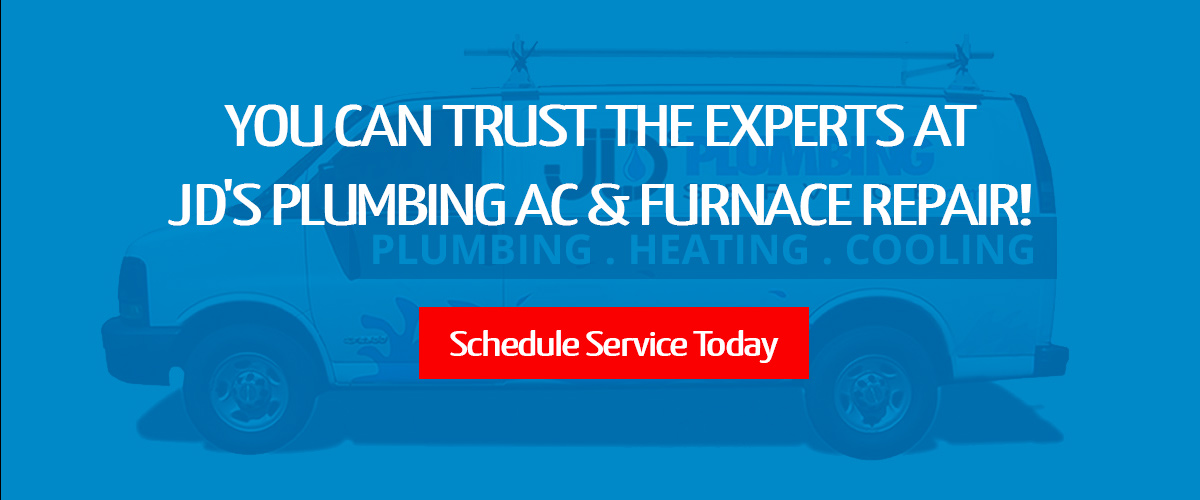Stop relying on costly professional services, you can take matters into your own hands with these easy-to-follow DIY Furnace Maintenance Guide. From cleaning filters to checking for leaks, this guide will walk you through the necessary steps to keep your furnace running smoothly. Say goodbye to expensive maintenance bills, and hello to a warm and cozy home.
Fulfilling all your responsibilities as a homeowner can be a daunting task. You need to conduct periodic maintenance of your home, pay mortgages and bills on time, and ensure that all essentials are working efficiently.
An essential part of Denver home maintenance is conducting a regular furnace inspection, something you may not always pay attention to. It is as important as any other maintenance task to keep your home in good condition.
Ever heard the term “prevention is better than cure?” It couldn’t have been said any better!

HVAC systems are essential to ensure comfortable temperatures inside your home throughout the year. Experiencing sudden breakdowns can be expensive and may require the complete replacement of your furnace system.
This DIY Furnace Maintenance guide covers all the important steps you need to follow to prevent costly breakdowns. Most of the maintenance tasks you’ll be performing are preventive in nature. We will be focusing on DIY maintenance of gas furnaces.
Table of Contents
A Word of Caution
We’ll be discussing common HVAC problems in Denver and their possible solutions. Remember, if there is something you don’t understand, stop whatever you’re doing and call a professional HVAC contractors like JDs Plumbing Heating & Air Conditioning.
While inspecting any electrical equipment; turn off the power supply to avoid hazardous incidents. Also, while vacuuming the burners, do not stick anything into the pilot light or try to make any adjustments to the burner flames. You can severely damage the components possibly resulting in a dangerous flash fire afterward. Leave all the technicalities to the pros and let them handle what you can’t do.
Most Common HVAC Problems
The most common HVAC problems include refrigerant leaks, which can cause a decrease in cooling capacity and higher energy bills, as well as dirty air filters, which can lead to poor indoor air quality and reduced system efficiency.
Here are some common HVAC problems that you need to keep tabs on:
Signs of Corrosion
Corrosion can happen when the moisture in your environment erodes wiring terminals or other metallic components of your unit. Once a month; check terminals and wires for any sign of corrosion. Use a piece of sandpaper and gently rub on the parts to remove corrosion. Sometimes, the flame sensor may prevent your furnace ignitor due to residual coating it. Remove the sensor gently from its bracket and use an emery cloth to clean it. Once done, put it back up in the bracket.
Leaking Pipes and Drain Lines
Pipes and drain lines can get blocked at any time. If left unchecked, a blockage may lead to leakages, forcing it to continue running for longer periods and damaging several key components in the process. Once a week, check all drain pipes for leakages. If there is something you don’t understand, call in professional Denver HVAC contractors.
Leaking Ducts
It is your heating ducts that deliver hot air to your rooms. If you notice any leaks in vents, use a piece of metal tape to seal off ducts. To inspect the leaks in vents turn it on and wait for the blower motor to kick in. Once turned on, you can confirm that the air is passing through the vents by holding your hand about 2 inches away from the sealed tape. If you do not feel the air, you are done. If you still notice leakages, it’s time to call in a Denver HVAC contractor.
Dirt and Debris
It doesn’t matter which part of the world we live in; the innate nature and ability of furnaces are to filter and deliver clean air inside our homes. In the process of doing so, the furnace filters become blocked and have to be either cleaned or replaced.
A dirty air filter will force your furnace to continue running for hours, reducing indoor air quality, and damaging essential components.
It takes 15 minutes to open up and clean the dirty filter. If you feel it cannot be cleaned, replace it. The fiberglass filter should be changed every 3 months and costs barely $5.
This will go a long way toward protecting the blower fan and blower compartments. However, if you are replacing your HVAC air filter, it is highly recommended to check the instruction manual and find the recommended options laid out by your brand.
In addition, you should also vacuum the blower motor without touching the blower blades. Manufacturers carefully balance these components, and any unnecessary adjustments can disrupt the heating process. You also do not want to void the HVAC warranty.
Modern HVACs come with a hot surface ignitor. Do not touch the igniters and use either a straw to blow the dust off or vacuum them gently. Hot surface igniters are sensitive and can break quite easily.
Friction Among Moving Parts
All furnace units contain moving parts, including motor belts, and older furnaces may also have motor bearings. Consult your instruction manual for the correct type of lubrication oil and lubricate these parts to reduce friction. Just by lubricating, you may notice a reduction in strange noises coming out of your furnace.
What are 8 Furnace Repair Mistakes Denver Homeowner Should Know About?

Winterizing Your AC in Denver: The Complete Guide for Homeowners
Signs and Symptoms You Need to Call an HVAC Professional
While there are several tasks you can do yourself, remember that your furnace system is a complex system that a non-qualified person may not understand. Cleaning and changing air filters is just the beginning. Then come the more difficult tasks such as checking the overall efficiency of your ductwork and electrical components. That’s where you’ll need to call in the HVAC professionals.
You May Be Interested In: How To Hire an HVAC Professional [A Checklist]
Here are some of the warning signs for when you should call in some professional HVAC contractors.
Short Cycling
Your furnace keeps turning off every few minutes. This is called short cycling and it means that your thermostat needs adjustment. Since most modern furnaces are designed to immediately shut off in case of a problem, it is ideal to call HVAC pros to determine the root cause and suggest a viable solution to the short cycling.
Uneven Flame
Your burners could be dirty and need to be immediately cleaned. Uneven flames could be the reason you aren’t receiving enough heat in your home. The burners are in a difficult-to-reach place. It is a good idea to properly vacuum the burners and your entire base. A vacuum cleaner is powerful enough to suck in all that dust you see on or near the dirty furnace.
Strange Noises from the Heating System
When your unit starts, is it a quiet operation or does it sound like a commercial jet is taking off? Modern furnaces should be quiet enough not to be noticed and if you hear strange noises such as rumbling, squeaking, or rattling, it is time to call in HVAC pros. The noise may be coming from a loose belt or motor and the sooner it is inspected, the better.
Mild to Severe Illness
If you or your family members frequently experience headaches or flu symptoms, it is time to have an annual furnace maintenance check-up. Illness could be a result of carbon monoxide leakages from improper combustion. It could also be from clogged duct pipes or mold growth near vents.
Key Takeaways:
- Routine furnace maintenance check-ups are necessary if you or your family members frequently experience headaches or flu symptoms.
- Deadly Carbon monoxide levels from improper combustion can cause illness, making furnace maintenance crucial to ensure safety.
- Clogged duct pipes can also contribute to headaches and flu-like symptoms, highlighting the need for annual maintenance.
- Mold growth near vents can lead to health issues, emphasizing the importance of regular furnace check-ups.

Furnace Inspection and Maintenance Costs
DIY preventive maintenance can cost between $10 to $50 depending upon the filter type and quality of the air filter that needs to be changed. If you hire HVAC technicians, expect to pay around $60 to $100 for Denver furnace inspection and preventive maintenance visits. While DIY preventive maintenance can save you some money, it is always a good idea to call in qualified HVAC contractors to inspect your furnace.
HVAC contractors are licensed in the state they are operating in. Many of them have years of experience in dealing with different types of furnaces and can provide a much better solution compared to an unqualified person.
While maintenance isn’t costly, it’s the repair costs where you will eventually start racking up expenses.
Here is the average cost of furnace repairs. Keep in mind that it will vary from state to state, so you need to ask your HVAC contractors before proceeding with any of the following repairs and replacements:
- Blower Motor: $150
- Replacement Blower Motor: $450
- Thermostat Replacement: $50 to $200+
- Replacement Igniter: $300 to $400
- Repair Flame Sensor: $80
- Replacement Flame Sensor: $250
- Repair Heat Exchanger: $100
- Replacement Heat Exchanger: $500 to $1,200
- Repair Pressure Sensor/Circuit Board: $50
- Replacement Pressure Sensor/Circuit Board: $350
- Replace Gas Valve: $150
- Replacement Smart Valve: $750
- Replacement Draft Inducer: $150 to $450
- Carbon Monoxide Detector $10-$200
If you notice that the repair or replacement cost is 50% or higher than buying a new furnace, it’s time to upgrade. Read on next to find out when it’s the right time to replace your furnace.
You May Want To Read:How to Clean a Furnace? [Step by Step DIY Instructions]
Symptoms You Need to Replace Your Furnace
The point of regular furnace maintenance is to keep it running safely for its expected lifespan of 15 to 20 years. However, as mentioned earlier, there are symptoms of when to call in an HVAC professional to do all the repairs and maintenance.
Similarly, there are signs of when it’s time to finally say goodbye to your old system and buy a new high-efficiency furnace.
The Following Signs Are a Surefire Way to Determine the Right Time to Replace Your unit:
- Your System is Over a Decade Old and Nearing the End of its Life Expectancy.
- It Keeps Turning On or Off Itself.
- You Notice Uneven Heat in Your Home.
- Your System is Making Strange Noises, Which Even After Costly Repairs Don’t Go Away.
- Your Energy Bills Are Skyrocketing Despite Regular Maintenance.
- The Manufacturer’s Warranty has Expired.
- Your HVAC unit needs regular repairs.
- There are Humidity Problems.
- Your Home Energy Yardstick score is Lower than Average.
You May Also Like: 7 Signs it’s Time to Upgrade Your Furnace
Regardless of your experience in maintaining and fixing HVAC systems; we’d still suggest you hire a professional furnace repair company in Denver to check all the issues and recommend a feasible solution, such as furnace replacement and an annual maintenance visit. Here’s a complete 2021 furnace replacement guide for Denver Homeowners.

How Much Does a Furnace Inspection Cost?
The average cost of a Denver routine inspection shouldn’t be more than $100 in Denver, CO. It covers everything that you can do at home but it’s done by professionals and includes:
- Heat Exchanger Inspection
- Inspect Safety switches and Devices
- Inspect the dirty Pilot light and dirty Flame Sensor
- Inspect Electric Motors/Oil Motors
- Lubricate Moving Parts
- Check and Tighten Motor Belts
- Check for Carbon Monoxide Leaks
- Check for Gas Leak
- Inspect Short Cycling
- Adjust Thermostat Settings or replace digital thermostat
- Inspect and tighten all-electric components
- Clean Air Ducts and Drain Pipes
- Clean air filter and Replacement Filter
- Test Ignition System
- Inspect Electric Connections for Proper Voltage and Amps
It takes anywhere around 2 to 4 hours for a proper annual furnace inspection to be done, and it is definitely worth the investment.
What are Emergency Furnace Repairs?
These repairs are typically needed when the furnace stops working during cold weather, leaving the home without heat.
Furnace Maintenance Checklist
Ensures that all necessary tasks are completed to keep a furnace running efficiently and safely.
- Check the flue pipe for any blockages or leaks
- Inspect electrical connections for any loose or damaged wires
- Test heat pump functionality and ensure it is running efficiently
- Prepare the furnace for the upcoming heating season
- Check the gas supply and ensure there are no leaks
- Monitor heating costs and energy consumption to optimize efficiency and reduce energy costs.
Call Us for Denver Routine Maintenance
Despite following our advice, we understand there may be times when you get stuck. So instead of pushing to do everything yourself, give us a call or submit your query here.
It’s always great to have a professional by your side. We have NATE-certified technicians who won’t perform unnecessary procedures on your heating system. Our annual Denver furnace inspection and maintenance involves thorough and comprehensive inspection and will keep your warranty intact.
Have a peaceful night’s sleep knowing your furnace will be in good working order when you need it the most. Let JDs Plumbing Heating & AC handle all your routine furnace maintenance and annual inspection needs.
A Free Guide: HVAC Replacement Process in Denver [A Definite Guide]


